
Imagine having such a close relationship with an herb that you could instantly recognize it, know how to use it, and confidently enjoy its gifts. “Simpling” offers that opportunity and more.

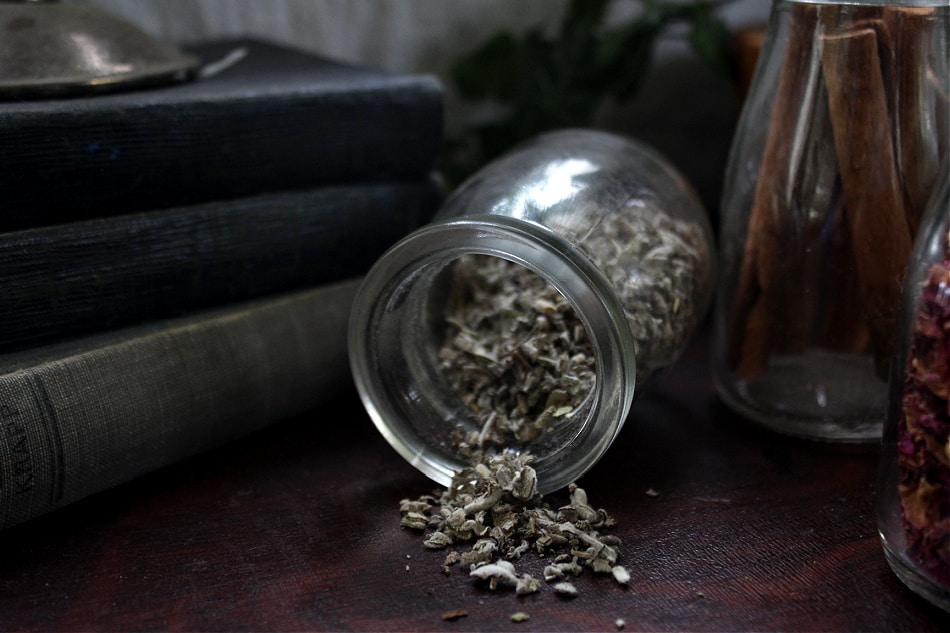
REGISTRATION OPENS: Sunday, April 16th, 2023
START DATE: Monday, May 1st, 2023
DURATION: 6 weeks
FEE: $67 USD

THE ART OF SIMPLING HERBAL COURSE
The Art of Simpling is a six-week online herbalism course that is exclusively available once per year. During this herbal immersion, we’ll explore the art and science of “simpling,” an ancient practice that involves dedicating your studies to one herb at a time in order to form a deep relationship with the plant and become intimately familiar with its uses, properties, energetics, history, and more.
In this course, you will choose which herb to study and then use the course material to build a beautiful herbal monograph. A “monograph” is a detailed study on a single topic. In this case, your herbal monograph will be on the plant you choose to study, and as you gain knowledge, you’ll add your favorite recipes, illustrations, uses, and more!
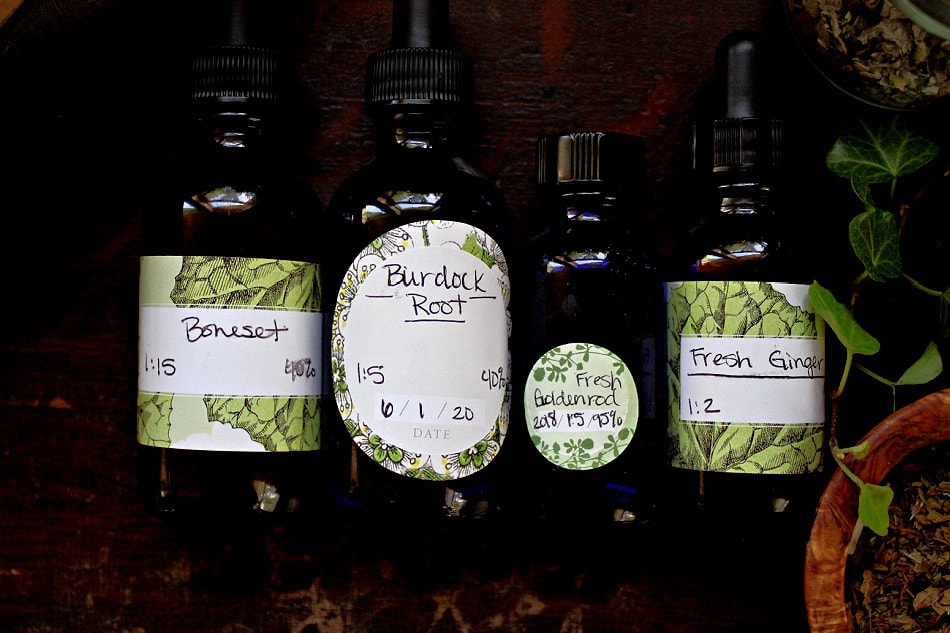
WHAT’S INCLUDED IN THE ART OF SIMPLING:
- In-depth lessons delivered to your inbox five days a week.
- Hands-on herbal activities to bring your lessons to life, including step-by-step instructions for making herbal teas, oils, tinctures, electuaries, and more.
- Journaling and engagement prompts to help you dig deeper into each lesson and intuitively connect with the plant of your choice.
- Instructions for how to create your own herbal monograph to refer to whenever needed.
- Interviews with well-known herbalists, including Rosemary Gladstar, Phyllis D. Light, Rosalee de la Forêt, and others on how they’ve used “simpling” and intuition in their own herbal practices.
- Guidance and fellowship in a student-only Facebook group.
- A beautifully designed PDF download of the entire course to keep forever.
“Getting to know one plant at a time helps you to form a deeper relationship with that plant. It’s not unlike getting to know a person. With time you learn what they like, what they don’t like. How they thrive, what challenges they have. What their gifts are and how to play it safe.”
— Rosalee de la Forêt (week 2 interview)
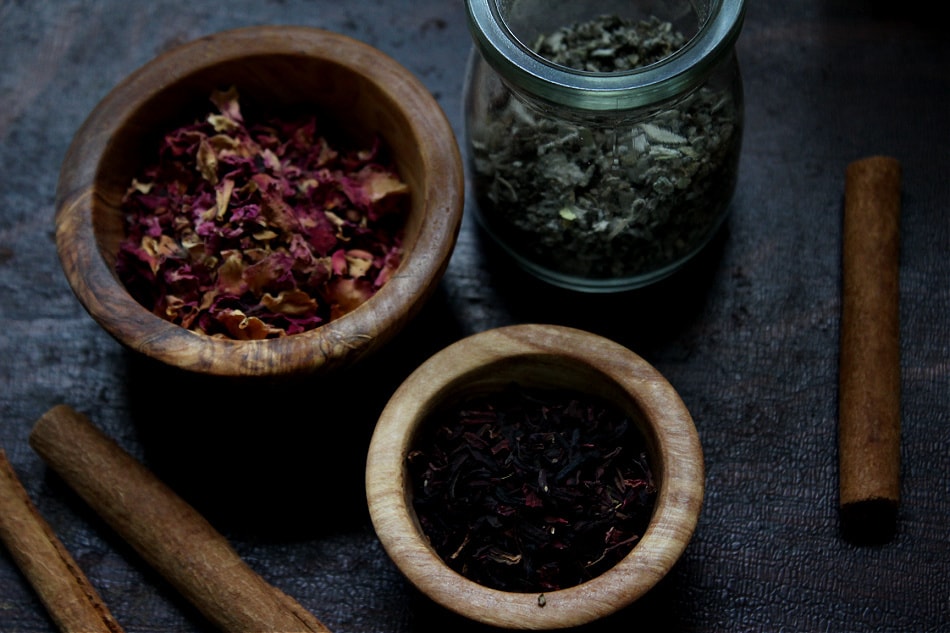
WHAT IS “SIMPLING?”
When I first began to study herbs, I tried to cram as much information on herbs into my head as possible, but as you can guess, that didn’t work too well. I continually found myself having to return to my notes and herbal books, again and again — relying on these resources instead of my own intuition and knowledge. Sound familiar?
What I needed was a way to learn about herbs that stuck with me and made it easy for me to recall herbal allies in times of need.
Eventually, I learned the value and necessity of spending time with a single plant until it became an ally — a friend I could rely on in times of need. An herb I knew well and felt confident using. I learned that this was called “simpling” — a traditional technique that our herbal ancestors used to help them learn about plants. By using one herb regularly over a period of time, they became intimately familiar with that plant on many different levels.
“I was taught that it was better to know everything a few plants could do rather than knowing one thing a hundred plants could do. Simpling is about learning to use the plants around you in their fullest capacity.
— Phyllis D. Light (week 4 interview)
There are many ways to learn about herbs. “Simpling” just so happens to be one of my favorite techniques. I’ll be sharing my own personal way of doing it — a mix of traditional art with some modern science thrown in as well.
By the end of this Art of Simpling course, you will have studied one plant in-depth, created an herbal monograph for future referencing, made several herbal preparations using your plant, learned how it can assist you in different situations, and ultimately, developed an intuition that will go call this plant back to you time and time again in the years to come.
“One will always develop a deeper and more meaningful relationship with a plant if we approach them as individuals and get to know their qualities and many characteristics before mixing and blending it with other herbs.”
— Rosemary Gladstar (week 6 interview)
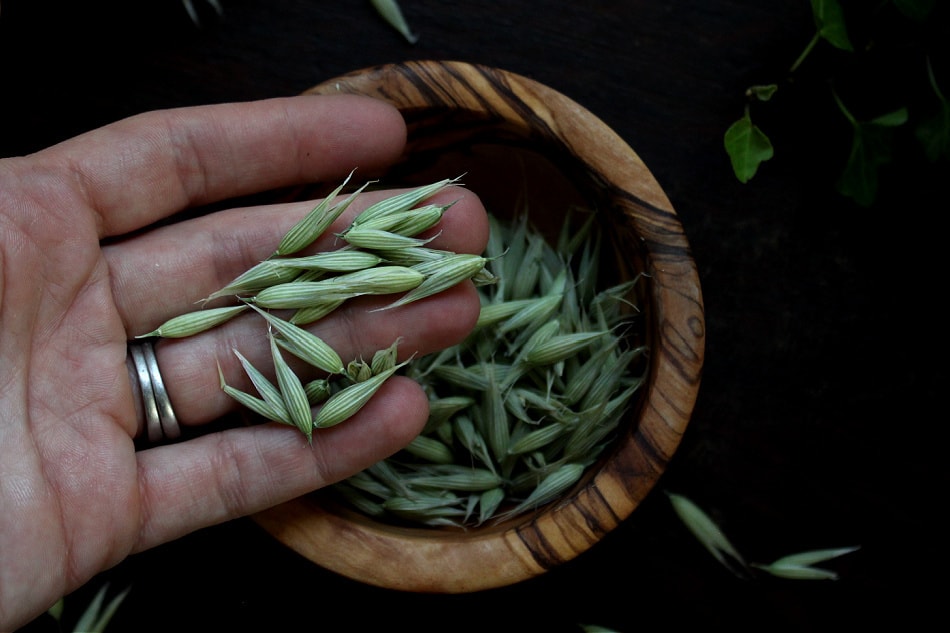
WHO IS ‘THE ART OF SIMPLING’ FOR?
ABSOLUTE BEGINNER HERBALISTS
If you’ve never used herbs, are scared of side effects, or can barely make a cup of tea using a prepackaged tea bag, this course is for you. You will find plenty of safety information along with a list of herbs that are thought to be generally safe for persons of all ages (including those who are pregnant or nursing, those taking medications, and those with previous health conditions). I’ll also show you how to test your herb for a potential allergy, and I’ll walk you through making each herbal preparation with detailed, step-by-step directions. Not only that, but I’ll be right there with you throughout the course in our student-only Facebook group where you can ask questions any time.
OCCASIONAL DABBLING HERBALISTS
If you’ve used herbs here and there throughout the years and are familiar with making various herbal preparations, but you’ve never taken the time to get to know the herbs you’re using one-on-one, this course will help you structure a routine for your learning. Sometimes we need a guiding hand to walk with us before we feel ready to walk on our own.
EXPERIENCED HERBALISTS
If you’ve been using herbs regularly for years and have a good solid knowledge base to draw from, you will already know much of the information I share in this course as far as creating monographs and making herbal preparations go. However, if you feel like you’ve yet to develop a relationship with the plants you’re using, this course can help you find your sweet spot between your book knowledge and your own personal intuition. Not only that, but it can be nice to set aside all of the “right answers” for a while and simply let the plants teach us. Am I right?
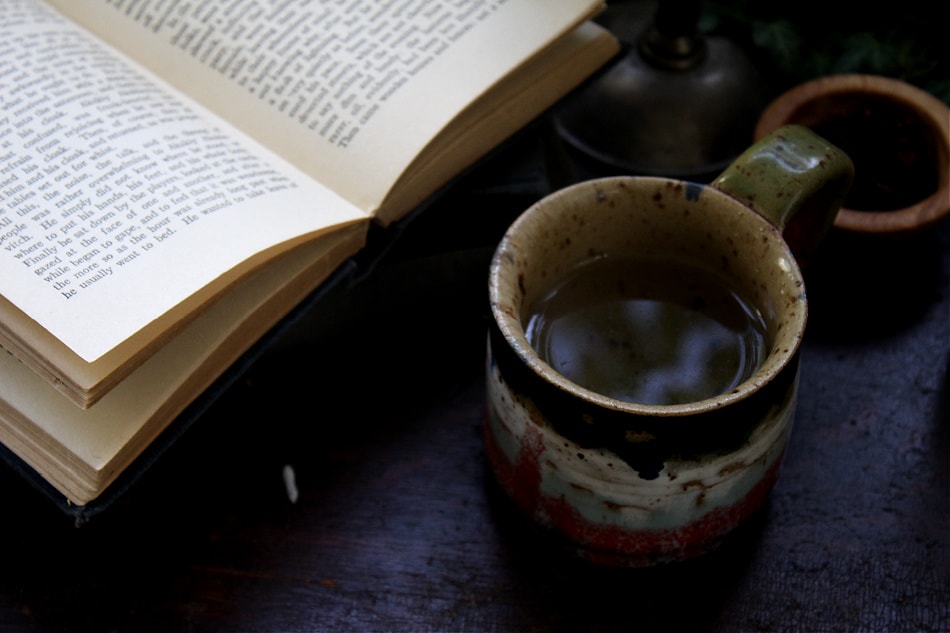
COMPLETE COURSE OUTLINE: THE ART OF SIMPLING
WEEK 1: Building your herbal foundation
In the first week, we will lay the bricks for a solid and long-lasting herbal foundation. You’ll choose the one special herb that you’ll be working with throughout the course, and we’ll set you up for success by sharing safety notes, recommended supplies, and more.
Together, we’ll explore:
- What is “simpling”? The study method our herbal ancestors used.
- Choose your herb! Pick from a list of 20 herbs that are generally recognized as safe, including nettle, calendula, hawthorn, tulsi, and more.
- Herbal safety: know your plant, your body, and your dosage.
- How to source high-quality herbs: foraging, gardening, and trusted suppliers.
- Testing for allergies (plus our first hands-on activity!).
- Tools for the simpler: an approachable list of supplies and study tools to use throughout this course.
WEEK 2: Getting your feet wet
In the second week, we dive into lessons that are accompanied by daily, hands-on exercises. Pour yourself a steaming mug of tea, enjoy the written lesson waiting in your inbox, and then be prepared to move on over to your kitchen or apothecary to start whipping up some herbal magic.
This week, we’ll explore:
- How to start your herbal “monograph,” an ongoing document where you’ll record everything you learn about your herb of choice.
- The best types of preparations for your herb of choice (teas, tinctures, etc).
- Herbal-infused oil (part 1): how to make this herbal apothecary staple.
- Herbal tinctures (part 1): crafting recipes with fresh vs. dried herbs.
- Developing your herbal intuition through your five senses.
- An exclusive interview with herbalist and best-selling author Rosalee de la Forêt.
WEEK 3: Sifting for gold – the treasures found in water.
In the third week, we will move on to one of my favorite and most approachable herbal preparations – tea! We’ll also discuss herbal actions and energetics and how they apply to various water-based preparations.
This week, we’ll explore:
- How to expand your herbal monograph with botanical names, plant descriptions, and more.
- Herbal actions (sedative, nutritive, diuretic, etc.).
- Herbal energetics (dry, moist, warm, cool, etc.).
- The difference between teas and infusions.
- Herbal tea comparison using fresh vs. dried herbs.
- Making a therapeutic, 4-hour herbal infusion with two different methods.
WEEK 4: Getting to the sweet stuff
In the fourth week, we will wrap up our water-based preparations and get to the sweeter side of things by using honey and sugar to create syrups, electuaries, and pastilles.
This week, we’ll explore:
- How to expand your plant monograph by adding the parts of your chosen herb that are commonly used (root, leaf, flower, etc.), and along with its actions and energetics.
- Choosing the most appropriate herbal preparation for your needs.
- Herbal syrups: an introduction to sweeteners, including sugar, honey, molasses, and more.
- Preserving herbal syrups.
- How to make an herbal syrup using the folk method.
- Using herbal powders: making herbal electuaries and pastilles.
- Exclusive interview with the fourth-generation herbalist, Appalachian healer, and author Phyllis D. Light.
WEEK 5: Piecing it all together
This week, we still strain and bottle the herbal oils and tinctures we made earlier in the month. We will also expand our herbal monographs, learn how to carry our herbal practice into the future, and we’ll hear exclusive advice about herbal intuition and simpling from the “godmother of American herbalism,” Rosemary Gladstar. (Yes, THE Rosemary Gladstar!)
This week, we’ll explore:
- How to research the uses of your chosen plant for your herbal monograph.
- Herbal-infused oils (part 2): straining the herbs from the oils and using the finished product.
- Herbal tincture (part 2): straining your herbal tinctures and using your five senses to compare the two finished liquids, one made with fresh herbs and one made with dried herbs.
- Putting it all together! Combining what we’ve learned to create your ongoing herbal practice.
- Interview with renowned herbalist and author Rosemary Gladstar.
WEEK 6: Wrapping Up
For our final week, we will finish your herbal monograph and share ways to carry what you’ve learned into future experiences.
This week, we’ll explore:
- How to finish your herbal monograph by adding your favorite recipes and preparations.
- Herbal practices and rituals to further your simpling practice.
- A special interview with folklorist, author, and herbalist Kiva Rose Hardin of Plant Healer magazine.
- A reflection on our time together, plus ways to stay in touch and further your herbal journey moving forward.
“There’s no magic pill to being a wise or intuitive herbalist. It comes from dedicating your life to the plants and accepting their teachings one day at a time.”
— Rosalee de la Forêt
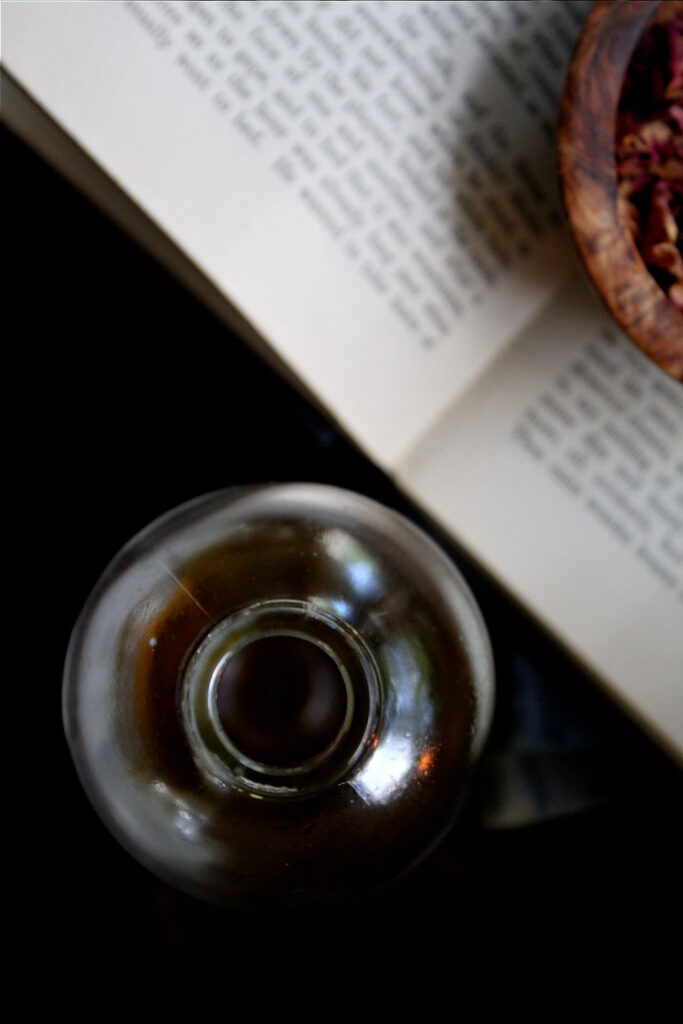
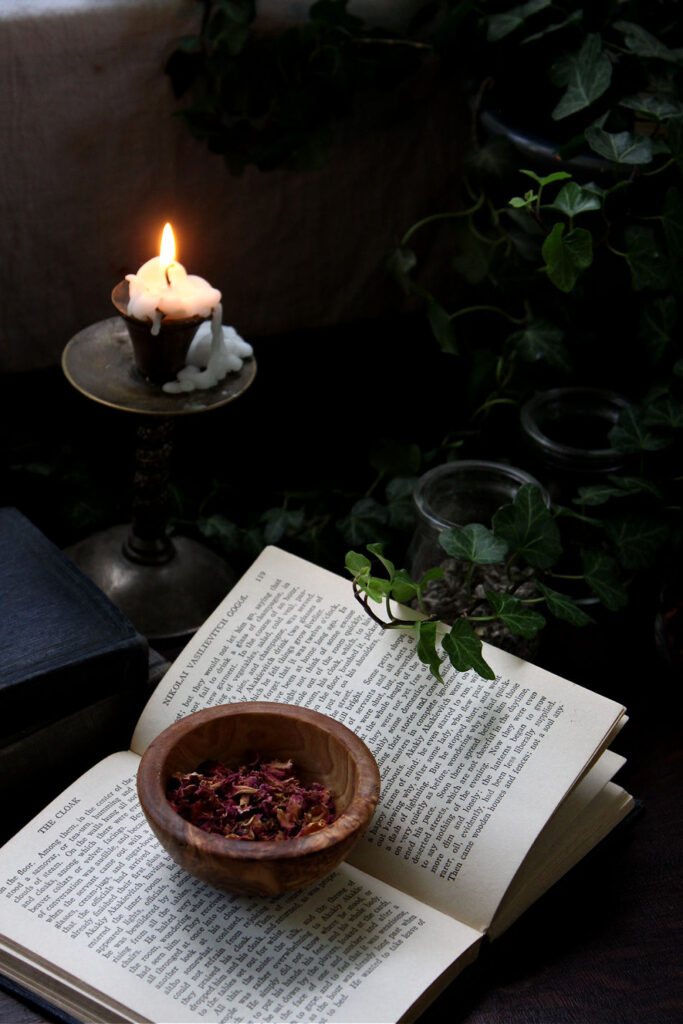
FREQUENTLY ASKED QUESTIONS
This six-week course costs $67. I’ve tried my best to keep it as affordable and approachable as possible because I truly believe that everyone would benefit from this information!
Enrollment opens on Sunday, May 16, 2021, and courses begin on Monday, May 31 when the first email lesson is sent to students. Make sure to enroll by May 30 to reserve your spot for only $67!
The course will not be open again until next spring (2022).
You will need an email address, a computer, tablet, or phone to read your lessons on, and a journal with a pen or pencil to create your monograph and take notes. You will need access to the herb that you choose to study (preferably in fresh and dried form), along with common kitchen supplies like jars, strainers, spoons, etc. (supply list here).
It will be helpful to have access to study aids, such as herbal books, an online herbarium, and/or Google. You will need a Facebook account if you’d like to join the student-only Facebook group where you can ask questions, get feedback, share what you are learning, and engage with others (not mandatory, but HIGHLY recommended).
You will receive a daily email, Monday – Friday, for six weeks. Each email will contain a lesson, an exercise, photos, and journaling prompts. On the last day of class, you will receive a beautifully designed PDF to download of the entire course so you can keep it forever!
Ideally, the lessons and exercises would be completed in order each day they are received. However, this is completely up to you. You can read the day’s email as soon as you get it or you can save all your lessons and exercises for the weekend (but know that will make for a busy weekend). This course is designed to fit your lifestyle.
I will be checking into the Facebook group several times a day throughout the course to answer questions and help you out in whatever way I can. Feel free to come and go and participate as you wish. You can expect to spend three hours or so on the course each week. With that said, don’t stress about falling behind — make this work for YOU and your schedule.
No. This course is copyrighted material and is only available to the person who purchased it. I’ve worked hard to create this course, and you paid good money to have access to it, so please, make sure that you respect my copyright. With that said, if I see emails being forwarded, I will remove you from the course immediately without a refund. Thanks for understanding.
You will gain a deeper understanding and connection to the plant you study, as well as to yourself as an herbalist. You’ll have access to a stress-free learning experience, and at the end of the course, you’ll have a completed herbal monograph that you made about your herb of choice.
You’ll have the knowledge about how to craft a variety of herbal preparations that you can continue to use over the weeks and months to come. You’ll have a deeper understanding of how your herbal intuition works, how to develop it, and how to use it. And ultimately, you’ll have a foundation for studying and using plants that can be used again and again and again!
Yes! Your currency is automatically converted when you check out using Paypal. If you would like to check the current exchange rate, this useful online currency converter is my favorite.
Absolutely! This online herbalism course is available to students around the world, and all of the material will be relevant to you. Because your local plants are different than mine, you may choose to study an herb that’s not as familiar to me. In that case, we’ll work together to make sure it’s a safe choice.
Yes, refunds are available while registration is open. However, once registration closes, refunds are no longer available.
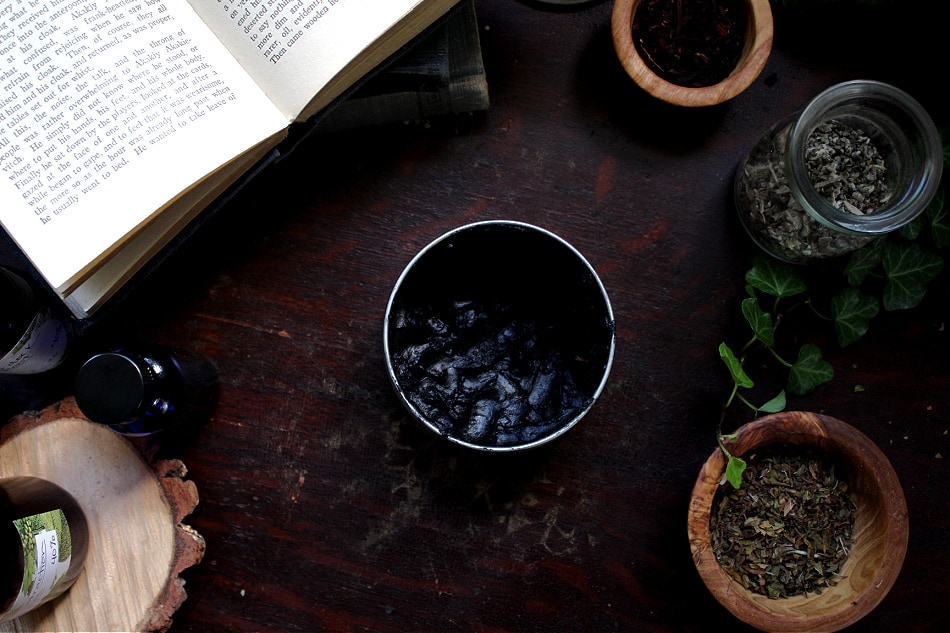
WHAT STUDENTS ARE SAYING
This was just what I needed! I’ve been wanting to get to expand my knowledge and wisdom of herbs, and I feel this course did just that. I now have the tools to use with any herb I choose to study. This was an immense help! — Pat Dean
The format of this course was perfect for me! I loved that the lessons came directly to my inbox each day, serving as a reminder that they were there. Each lesson was short enough to complete in a day, but I liked that I was also able to save the lessons and tackle them all over the weekend if I needed to. Another thing I really enjoyed was the various learning styles incorporated into this course, such as the text lesson itself, the writing exercises that made me think deeply, and the hands-on projects for personal experience. Thank you, Meagan, for creating a fun course that really took me back to a more traditional practice of herbalism. I really enjoyed it, and I can’t wait to do it again with you next year! — Maggie Winston
I really enjoyed this course. It was organized and thoughtfully put together, and I feel that it really wove aspects of traditional and modern herbalism together so well. Thank you so much! I loved the bite-sized lessons, and the interviews with the herbalists was such a nice way to end each week. And wow—what a list of inspiring herbalists! I loved hearing their thoughts on studying herbs one at a time and developing one’s herbal intuition. So good! I also enjoyed having access to you via email and in the Facebook group to ask questions. It was nice to connect with other students in the Facebook group as well. Thanks again for sharing this information. I now feel like I have a good foundation for getting to know a new herb and developing a personal relationship with it. — Sharon H.
The Art of Simpling is an absolute delight – a thorough introduction to working with herbs and making a variety of preparations. I have been on the herbal path for some time now but when I want to get to know a new herb, I get this course manual out again and work through it with the plant. It feels like a gentle yet knowledgeable hand is guiding me through my exploration of the herb and all its uses. It covers safety, practicalities, preparations, using your senses, keeping records and more – for a short course, I find it covers a lot of ground! I love it and know that I will come back to it time and again when I want a reminder of the art of simpling. The course is also visually beautiful so just reading through it is a pleasure. — Sameena A.

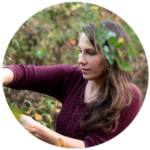
In case we haven’t met yet, I’m Meagan, a registered nurse turned folk herbalist and natural lifestyle blogger at Growing Up Herbal. I’m located in the Southern Appalachian mountains of East Tennessee. During the day you’ll most often find me homeschooling my four boys, working to make my home a cozy and hospitable space for friends, embracing a slow and seasonal lifestyle, pittering in my gardens, using herbs for various ailments that arise every so often, and teaching others what I’m learning along the way! Connect with me on Instagram at @growingupherbal.